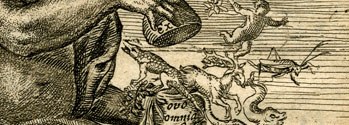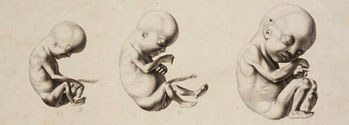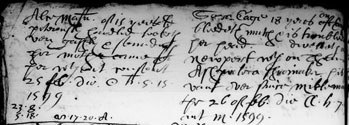 An international workshop held at King's College, Cambridge, 12–13 April 2011
An international workshop held at King's College, Cambridge, 12–13 April 2011
The issues of language and identity are central to numerous questions about leprosy, leprosy sufferers and leper hospitals in the Middle Ages, and to broader issues relating to disease and disability from ancient to modern times. Although recent historians have challenged the predominant earlier view that the leprous were excluded and stigmatized, much work remains to be conducted about the understanding of leprosy and responses to leprosy sufferers in the Middle Ages. This workshop, supported by the Wellcome Trust and King's College, Cambridge, brings together scholars working on multiple aspects of medieval leprosy from the UK, Europe and the USA.
Tuesday 12 April (Saltmarsh Rooms)
| 10:00 | Registration and Coffee |
|---|---|
| 10:30 | Welcome (Elma Brenner and Peter Jones) |
| 10:45 | Keynote Address (Chair: Elma Brenner) Luke Demaitre (University of Virginia), 'The Clapper as "Vox Miselli": New Perspectives on Iconography' |
| 12:00 | Session 1: The Language of Leprosy, I: Saints' Lives (Chair: Isla Fay) Adelina Angusheva-Tihanov (University of Manchester), 'How Rhetorical are the Symptoms? The Description of Leprosy in the Vita of St Stephan of Dechani and its Byzantine Medical Sources' Courtney A. Krolikoski (Central European University, Budapest), 'To Kiss a Leper: Saint Francis of Assisi and the Changing Perception of Leprosy' |
| 13:00 | Lunch |
| 14:00 | Keynote Address (Chair: Peter Jones) François-Olivier Touati (University of Tours), 'Lepers and Leprosy: Connections between East and West in the Middle Ages' |
| 15:15 | Tea and Coffee |
| 15:45 | Session 2: The Nuances of Identity (Chair: Lea Olsan) Julie Orlemanski (Harvard University), 'Leprosy and Defaced Recognition' Elma Brenner (University of Cambridge), 'Leprosy and Identity in Medieval Rouen' |
| 17:30 | Visit to King's College Library, led by Peter Jones (King's College, Cambridge) |
| 19:00 | Drinks Reception, followed by Dinner at 19:30 (Saltmarsh Dining Room) |
Wednesday 13 April (Saltmarsh Rooms)
| 10:00 | Keynote Address (Chair: Elma Brenner) Carole Rawcliffe (University of East Anglia), '"A Mighty Force in the Ranks of Christ's Army": Intercession and Integration in the Medieval English Leper Hospital' |
|---|---|
| 11:15 | Tea and Coffee |
| 11:45 | Session 3: The Language of Leprosy, II: Labelling Leprosy in the Medieval and Modern Periods (Chair: Debby Banham) Conan Doyle (University of Cambridge), '"The White Scab that Men in the South Call Lepra"' Kathleen Vongsathorn (University of Oxford), 'The Horror of Leprosy: Understanding "Civilised" Concepts of Leprosy, from the Nineteenth Century to the Present' |
| 12:45 | Lunch |
| 14:00 | Session 4: The Social and Religious Identity of the Leprous (Chair: Peter Jones) Damien Jeanne (Université de Caen Basse-Normandie), 'The Disease and the Sacred: The Leper as a Scapegoat in Normandy and England (12th Century)' Rafaël Hyacinthe (Laboratoire de Médiévistique Occidentale de l'Université de Paris), 'From Pilgrim to Knight, From Monk to Bishop: The Distorted Identities of Leprosy within the Order of Saint Lazarus (13th–15th Centuries)' Kay Peter Jankrift (Universität Augsburg), 'Suffering on the Road: "Leprosy" Beyond the Institutional Frame' |
| 15:30 | Tea and Coffee |
| 16:00 | Session 5: Identifying Leprosy in Material Remains (Chair: Rebecca Oakes) Simon Roffey (University of Winchester), 'The Archaeology of a Medieval Leper Hospital: Saint Mary Magdalen, Winchester, in Context' Max Satchell (University of Cambridge), 'Evidence of Absence or Absence of Evidence? A Review of Physical Evidence for Hansen's Disease in Britain from Prehistory to c.1000 AD' |
| 17:00 | Roundtable Discussion and Concluding Remarks |



